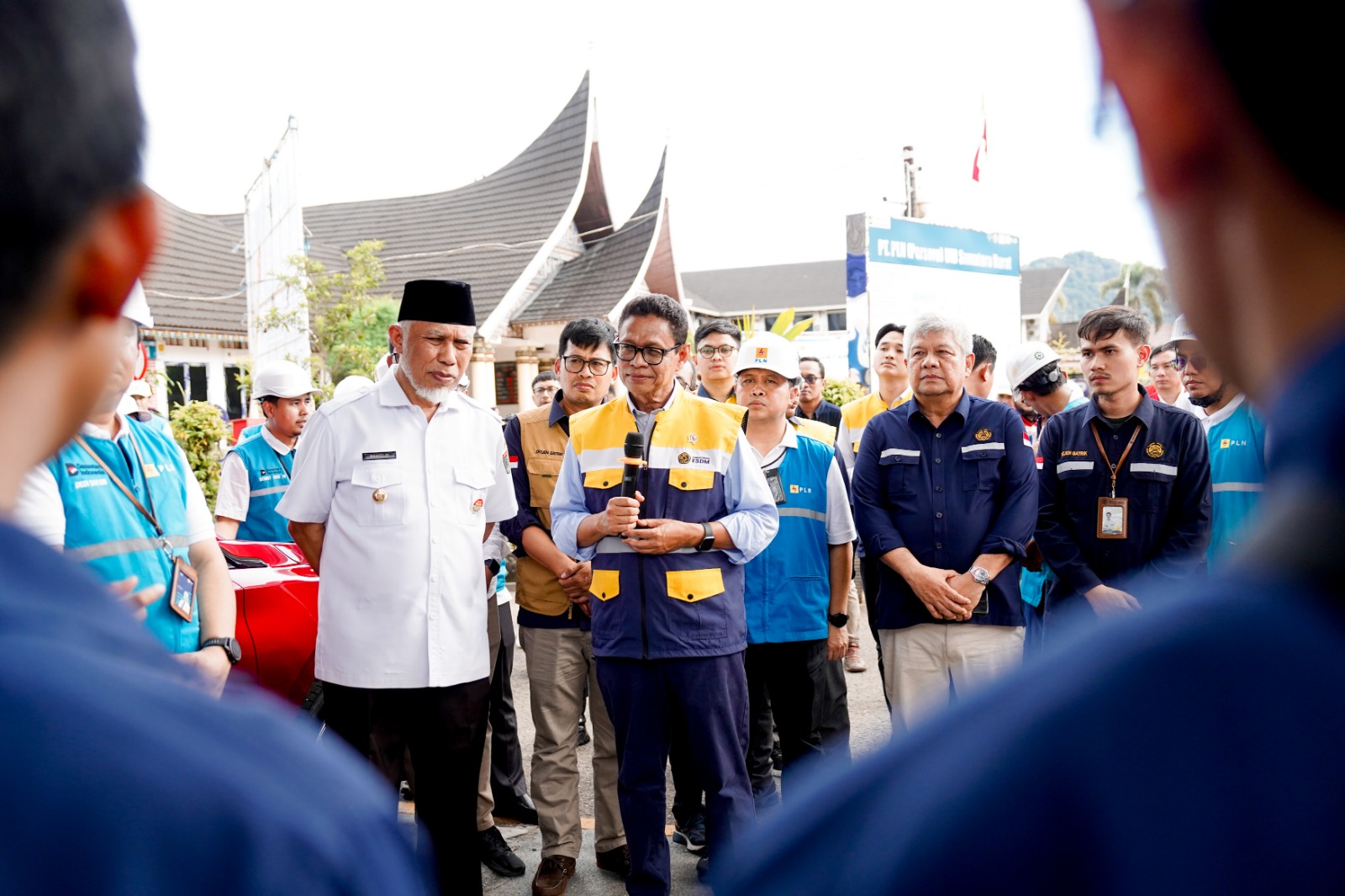
Electricity Generation Cost in 2020 Fell by 11.7 percent, Says Electricity Director General
MINISTRY OF ENERGY AND MINERAL RESOURCES
PRESS RELEASE
NUMBER: 016.Pers/04/SJI/2021
Date: 14 January 2021
Electricity Generation Cost in 2020 Fell by 11.7 percent, Says Electricity Director General
Director General of Electricity, the Ministry of Energy and Mineral Resources, Rida Mulyana, explained there was a cut in electricity subsidy in 2020 due to a reduction in the electricity generation cost (BPP). Initially, the BPP was set at Rp359.03 trillion, while the realization was only Rp317.12 trillion.
"Because of the reduction in the ICP (Indonesian crude oil prices) and the cap on natural gas price, the BPP fell to almost Rp42 trillion or 11.7 persent overall. What is interesting to note is the fuel cost that was initially set at Rp146.67 trillion had decreased by Rp37.51 trillion to Rp109.16 trillion," said Rida at the virtual Press Conference on the Performance Report of the Electricity Subsector in 2020 on Wednesday (13/1).
The Indonesian Government's policy to set natural gas price for the electricity subsector at USD6 per mmbtu has proved to lower spending on electricity subsidy in 2020. It is estimated that electricity subsidy can be lowered to Rp51.84 trillion, below the amount set in the State Revenue and Expenditure Budget (APBN) of Rp54.79 trillion.
Most of the saving has been contributed by lower fuel cost due to the reduction in Indonesian Crude Price (ICP) and the cap on natural gas price for electricity generation. The ICP assumption in the 2020 APBN was USD63 per barrel, but, as it turned out, the ICP fell to USD35 per barrel. Natural gas price, which was previously set on a business-to-bussiness basis between State Electricity Company PLN and gas producers or assumed at USD8.39 per mmbtu, was capped at USD6.30 per mmbtu.
The reduction in natural gas price has made around Rp14 trillion or 37% saving of fuel cost in the BPP. This shows that government policies significantly contribute to state expenditure saving.
"The amount is huge, and as a result, we can reduce subsidy. This is a proof, how a policy can save state expenditure. In this case, to reduce electricity subsidy by maximing efficient BPP at power plants that are managed by PLN," Rida said.
Besides the fuel cost factor, the reduced BPP had also been contributed by saving in personnel expenditure, maintenance, as well as administration, depreciation, and interest. The maintenance budget was initially set at Rp20.90 trillion, but it dropped to Rp18.36 trillion. Personnel expenditure fell to Rp18.94 trillion from previously Rp20.34 trillion. Administration, depreciation, and interest had also decreased, to Rp60.25 trillion from previously Rp62.73 trillion. However, electricity purchase by PLN from Independent Power Producers (IPP) and power plant rent had increased, from Rp108.40 trillion to Rp110.42 trillion. (IY)
Head of Bureau of Communication, Public Information Services, and Cooperation
Agung Pribadi (08112213555)
Share This!






